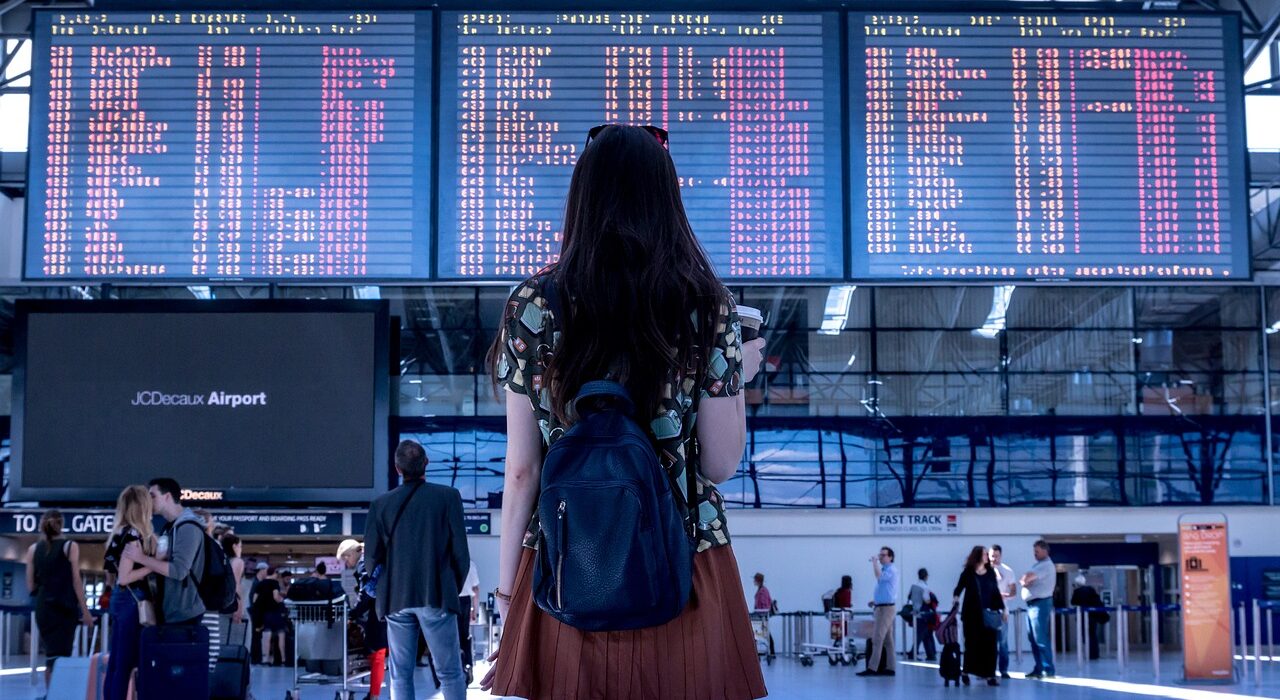These visa tips will come in handy for anyone traveling abroad for the first time. While the thought of seeing a new country can be really exciting, the process of applying for a visa can be overwhelming for first timers. Different countries can have varying requirements and procedures, so it can be confusing for anyone who has not tried it yet.
Here at Checklist Visa, our goal is to help make the process of visa applications easier, especially for first-time applicants. We understand how complicated the process can be, so we’ll equip you with the knowledge to tackle these steps with confidence.
Before you start with your visa application, read our visa tips below.
1. Understand the Different Types of Visas
One of the most important visa tips is to equip yourself with knowledge of the different types of visas available out there. That way, you will know which visa will be applicable the most to you. Here are some of the most common visa types:
Tourist Visa
Do you want to go sightseeing in a new country? Then you will need a tourist visa for that. This is the most common type of visa, as it applies to tourists visiting a new country for a short period. Depending on the country’s regulations, your tourist visa may only be good for a few days or months. In some countries, such as the United States, you can apply for an extension of the tourist visa.
Student Visa
If you intend to study abroad, then you will need a student visa for this. With this visa, you can stay in the country for the entire duration of your studies. But before you can apply for this visa, you typically need to first be accepted and enrolled at a school or university located in the host country.
Work Visa
Remember, you cannot work in another country using a tourist visa or any other type of visa. To take up work in a foreign country, you must have a work visa. This visa requires a sponsorship from the company that will employ you. Its validity is usually tied to your employment contract. Therefore, you must first apply for a job and get accepted before you can get a work visa.
Business Visa
Also called the “commercial visa“, this visa is applicable for those who are traveling to a foreign country for business purposes. Example for this is attending business meetings and conferences and negotiating business contracts with potential clients.
Transit Visa
There are instances where one would need to pass through another country before reaching their final destination. This is especially true if you are taking long-haul flights. In this case, you might need to apply for a transit visa.
Note that a transit visa may not be required if you will not go out of the airport or if you’re only passing for a short period, such as less than four hours. The requirements will usually vary depending on your nationality and other factors. That’s why the most important visa tip is to research if you need a visa or not. You can also get in touch with the airline company for more information about transit visas. Read our blog on the importance of a transit visa.
Family or Spouse Visa
If you are invited by a family member to visit a foreign country, then you will need a family visa. This usually applies to the spouses or kids of the individual residing in another country. Once you are granted this visa, you can live in the country permanently to join your family member. In some countries, you are allowed to work under this visa.
2. Research the Visa Requirements for Your Choice of Destination

Researching the requirements is among the most important visa tips for first time travelers. The visa requirements will mainly depend on the type of visa you are applying for. Failure to fulfill these requirements could result in the rejection of your visa application.
For instance, if you are planning to visit Canada as a tourist, you can refer to the requirements for a Visitor Visa also known as a temporary resident visa. Besides the passport and completed application form, you also need to submit additional documents to further confirm your eligibility. These include proof of financial support, a travel itinerary, a letter stating your purpose of visit, and proof of strong ties to your home country.
The lack of supporting documents is often the main reason for visa rejections. Therefore, before you send in your visa application, double-check that you have all the required documents.
4. Apply Well in Advance
Once you’ve decided on the type of visa you need and gathered all the documents you have to submit for the application, the next crucial stage is submitting your application. Remember, one of the most important visa tips is to apply as early as possible.
The processing times can vary from country to country. In some countries, it may take only a few days, but most times it can drag on for weeks or even up to several months! Therefore, apply as early as two to three months ahead of your scheduled trip. This will give you enough time to address any unforeseen issues regarding your visa application.
5. Prepare for a Visa Interview

You may need to appear for an interview when applying for certain visas. This is one of the most crucial parts of the visa application process since the approval of your visa will mainly depend on how you answer your interview. Therefore, one of the most important visa tips to keep in mind is to prepare for your visa interview.
The key is to answer all questions confidently and truthfully. Most questions will be based on the documents you have submitted. For instance, if you have indicated on your visa application that your purpose for traveling is sightseeing, you may be asked about which places you plan to visit. So, be ready to explain your itinerary, including where you’re staying, and when you plan to return to your home country.
Stay calm throughout the interview and focus on the questions. If you panic, you could end up giving the wrong answers, which could jeopardize your visa application. For more about this, read our blog for tips on successful visa interviews.
6. Be Aware of Visa Fees
Some applicants are not aware that they have to pay a fee when applying for a visa. The visa fee varies from one country to another, even in the type of visa and sometimes on the nationalities of the applicant. Confirm from the embassy or consulate websites how much it will cost you to process your visa before applying. Also, there might be third-party service charges if you hire a visa processing center to process your visa.
In addition, be aware of the payment methods accepted. Some may accept credit or debit cards as an online payment method while others would only accept a bank draft or a cash payment directly to the embassy or consulate. Note that the visa fees cannot be refunded in case your application is denied.
7. Keep Track of Visa Validity and Entry Requirements
Once your visa is approved, they will return it to you. Pay close attention to the details on your visa. Find out the time period over which your visa remains valid and the actual date it expires. Some visas allow multiple entries, meaning you are allowed to enter and leave the country several times for a specific period. Other visas may only allow single entry.
Do not overstay your visa. Overstaying may lead to heavy fines and deportation, and even banned from entering the country in the future. Leave before your visa expires, so as not to affect your future travel plans.





1 Comment
Comments are closed.